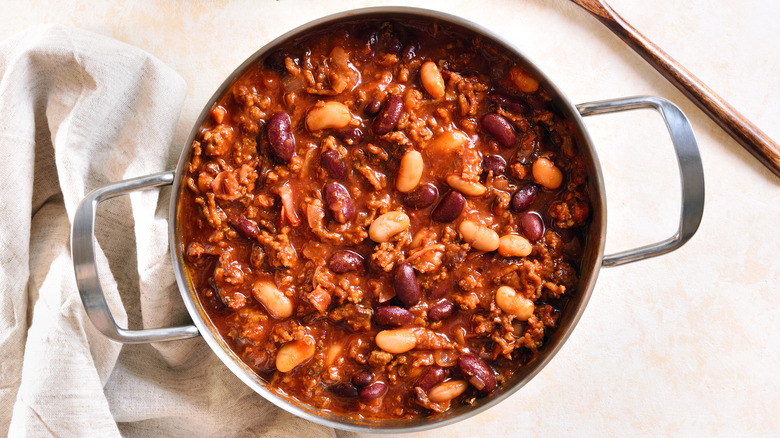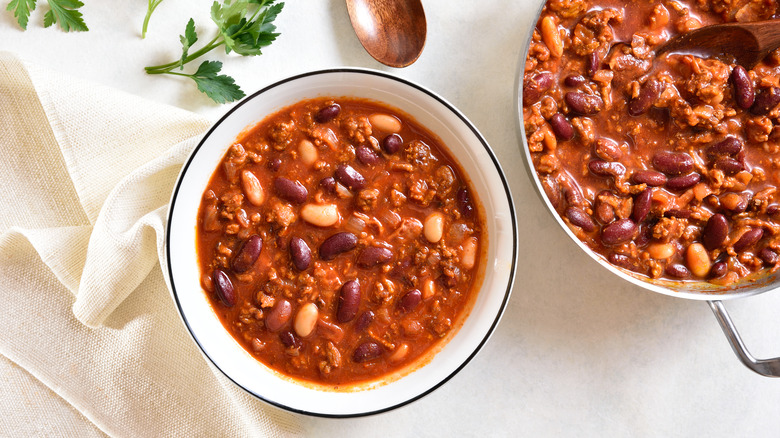The Bean Cooking Myth You Need To Stop Believing
If you've been a cooking aficionado for some time, then you've probably run across any number of kitchen "rules" that are never supposed to be broken. Maybe you've heard, for example, that when separating eggs, you've got to be really careful to not get even a drop of yolk into the whites, lest they fail to froth and stiffen (via The Washington Post). Perhaps you've been told that when making a tomato sauce, you should scoop out the fruit's seeds and the jelly that surrounds them since they're bitter (via Cook's Illustrated).
Abiding by time-tested guidelines is never a bad idea, but as it turns out, lots of the kitchen "rules" we grew up with aren't actually based in fact. According to Serious Eats, a tiny speck of egg yolk in your whites won't prevent them from whipping, though it might take longer for them to reach stiff peaks. And Cook's Illustrated assures us that tomato seeds and their jelly are actually packed with delicious glutamic acid, the compound responsible for "umami" flavor (via Healthline), and should be removed as a last resort.
There's one other cooking myth that it's time to retire, according to Serious Eats, and it has to do with dried beans.
Salting your soaking and cooking water is totally fine
If you've ever cooked with dried beans, you've probably encountered a few opinions on how to do it. There's the eternal debate on whether or not you need to soak the legumes (hint: you can, but you don't have to), and there's also a whole kerfuffle over the effect of salt on a pot of beans. According to Serious Eats, cooks both professional and amateur often warn not to soak or cook beans in salted water, on the theory that the beans will never soften, due to the salt hardening their outer skin. The outlet has tested this "rule" on multiple occasions, each time concluding that beans soaked and then cooked in salted water are actually more tender and less prone to a phenomenon the site calls "bean bursting."
You've probably experienced the phenomenon yourself: You're eating, say, a chili featuring "whole" beans, except that lots of them have burst through their skins and broken up a bit. According to Serious Eats, salted water penetrates bean cells better — particularly their tough outer skins — allowing both the legumes and their skins to soften and swell at a similar rate. Ultimately, this results in a more tender bean — not less! — that holds its shape and integrity better than beans that haven't been soaked and cooked with salt. The site suggests adding a tablespoon of salt per liter of water for soaking, and seasoning generously with salt during cooking, too.

